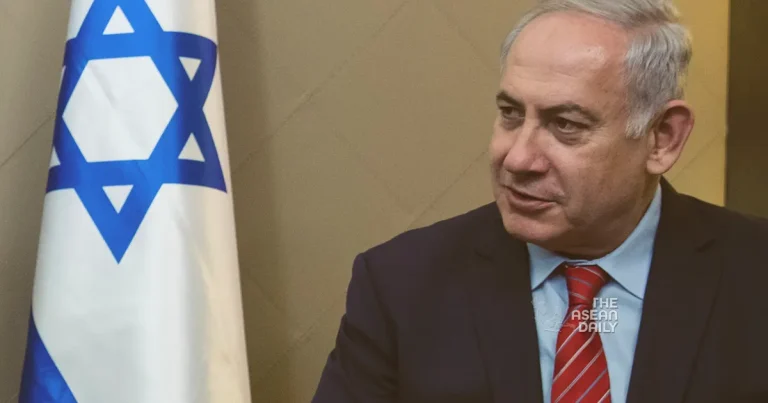7-11-2023 (GAZA) Prime Minister Benjamin Netanyahu of Israel has stated that his country would be open to considering temporary breaks in the fighting in Gaza to allow for the entry of aid or the release of hostages. However, he firmly rejected calls for a general ceasefire, despite growing international pressure.
In a recent interview with a US television network, Netanyahu, whose government has pledged to dismantle Gaza’s ruling party, Hamas, expressed his belief that Israel would need to retain security control over the Palestinian enclave for an “indefinite period” following the war.
When asked about the possibility of humanitarian pauses during the conflict, a proposal supported by Israel’s closest ally, the United States, Netanyahu argued that a general ceasefire would impede his country’s war efforts.
Netanyahu stated, “As far as tactical little pauses – an hour here, an hour there – we’ve had them before. I suppose we’ll assess the circumstances to allow for the entry of humanitarian goods or the release of individual hostages.”
However, he made it clear that he did not anticipate a comprehensive ceasefire.
Both Israel and the Hamas militants who hold control over Gaza have disregarded mounting international calls for a cessation of hostilities. Israel insists that the hostages taken by Hamas during their incursion in southern Israel on October 7 should be released first. Hamas, on the other hand, refuses to free the hostages or halt their fighting as long as Gaza continues to be under assault.
Since the attack, which resulted in the deaths of 1,400 people in Israel and the capture of over 240 hostages, Israel has launched airstrikes, imposed a blockade, and initiated a ground offensive, prompting global concern over the deteriorating humanitarian situation in the enclave.
The health ministry in Gaza, under Hamas control, has reported that at least 10,022 Palestinians have been killed, including 4,104 children, since the conflict began. International organizations have warned that hospitals are overwhelmed, and essential supplies such as food and clean water are running critically low, with aid deliveries falling far short of the required amount.
“We urgently need a humanitarian ceasefire. It has been 30 days. Enough is enough. This must come to an end,” urged a joint statement from the leaders of several United Nations bodies, including UN High Commissioner for Human Rights Volker Turk, World Health Organization head Tedros Adhanom Ghebreyesus, and UN aid chief Martin Griffiths.
The United States has been actively pushing for temporary pauses in the conflict to facilitate the delivery of aid. However, both the US and Israel have argued that Hamas would exploit a full ceasefire to regroup and rearm.
US President Joe Biden discussed these potential pauses and the release of hostages during a phone call with Netanyahu, reiterating his support for Israel while emphasizing the importance of protecting civilians, according to a statement from the White House.
GRAVEYARD FOR CHILDREN
UN Secretary-General Antonio Guterres issued a grave warning on Monday, describing Gaza as a “graveyard for children” and calling for an immediate ceasefire in the region.
“The ground operations by the Israel Defense Forces and the ongoing bombardment are causing civilian casualties and damaging hospitals, refugee camps, mosques, churches, and UN facilities, including shelters. No one is safe,” Guterres stated during a press briefing.
He further added, “At the same time, Hamas and other militants are using civilians as human shields and persistently launching indiscriminate rocket attacks towards Israel.”
Behind closed doors, the UN Security Council convened to discuss the situation in Gaza. Despite four failed attempts in the past two weeks to reach an agreement, the 15-member council is still striving to adopt a resolution. One of the key obstacles revolves around determining whether to call for a ceasefire, cessation of hostilities, or temporary humanitarian pauses to facilitate aid access in Gaza.
Regarding future governance in Gaza once the conflict subsides, Netanyahu responded in the ABC interview, saying, “I believe Israel will assume overall security responsibility for an indefinite period… We have witnessed the consequences when we do not have that security responsibility.”
The Biden administration has informed the US Congress of its plans to provide Israel with $320 million worth of precision bombs, as confirmed by a source familiar with the matter on Monday.
Meanwhile, Israel announced that it was striking Hezbollah targets in Lebanon in response to a barrage of rockets fired at northern Israeli cities. The Israeli military reported detecting approximately 30 launches from Lebanon within a single hour.
Amidst the ongoing conflict between Hamas and Israel, Hezbollah, backed by Iran, has been engaged in confrontations with Israeli forces along the Lebanese-Israeli border, marking the most intense fighting in the region since the 2006 war between Hezbollah and Israel.
Hamas has claimed responsibility for launching 16 missiles towards Nahariyya and Southern Haifa in Israel.




